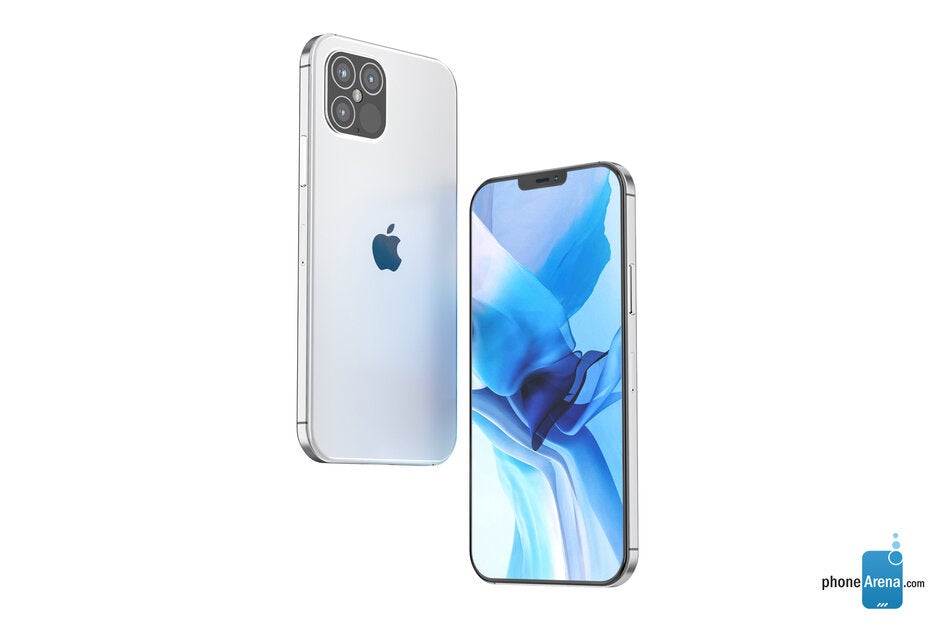Last year Apple surprised many by the power of the batteries used with the iPhone 11 line. For example, the top-of-the-line iPhone 11 Pro Max lasts up to 5 hours longer than the 2018s iPhone XS Max according to Apple. As a result, even power users can make it through the day with enough soup left over to stream some of their favorite content at night. While some iPhone users are looking forward to seeing their handset run faster over 5G, they are also worried about the battery life of the new models. 5G connectivity costs more battery life than a 4G LTE connection.
In order not to increase iPhone prices in the 5G era, Apple is changing the battery technology in the new models
Rumors about the battery capacity of the four expected 2020 iPhone 12 models have given no consolation, as it would appear that Apple will reduce the batteries used to power this year’s phones. Apple could count on the improvement in energy consumption expected with the 76% increase in the number of transistors (to 15 billion) that will be deployed by the new 5nm A14 Bionic chipset. However, a new report released by TF International analyst Ming-Chi Kuo contains some interesting news.
The Apple iPhone 11 Pro Max has the best battery life of any iPhone ever made
Kuo, whose office should have a flashing neon sign on the door that says, “When it comes to Apple, I see everything and know everything,” clients told a report today that the tech giant is making changes to its battery technology. and iPhone. According to AppleInsider, Kuo’s missive says Apple will cut costs by using cheaper and less technologically complex battery technology by 2020 iPhone 12 series, the 2021 iPhone 12S series, and the AirPods 3. More specifically, Kuo says that Apple was able to cut 40% to 50% of the average unit cost of the batteries needed for this year’s handsets. This would be achieved by reducing the number of rigid-flex battery plate layers and squeezing active cell components into a smaller area. For the iPhone 12S family of 2021, Kuo expects Apple to replace the rigid flex boards with a “flexible architecture” that would result in a 30% to 40% drop in battery unit cost.
The analyst says Apple is making the change to help cover the extra cost of building 5G support in the iPhone. Upgrading an iPhone to receive sub-6GHz 5G signals costs Apple an additional $ 75 to $ 85 per unit that Kuo says; add the components needed for the device to connect with super zippy mmWave 5G Spectrum added at an additional $ 125 to $ 135 to the cost of building the product. The overall effect of changing the battery technology will be monetary to keep prices stable as the iPhone moves in the 5G era.
According to regulatory filings, the iPhone 12 could sport a 2227mAh battery (compared to 3110mAh for the iPhone 11), the iPhone 12 Max could be equipped with a 2775mAh battery (compared to 3190mAh for the iPhone 11 Pro), and the iPhone 12 Pro Max could be powered by a 3687mAh battery (compared to the 3969mAh battery in the iPhone 11 Pro Max). It now appears that Apple will not record a 120Hz refresh rate on the 2020 iPhones as originally rumored. This could be done to prevent the batteries from running too early on the new phones, because updating the screen 120 times per second requires a lot of battery power.
Apple will also drop the second-generation battery technology they use on Bluetooth wireless AirPods, according to Kuo. He says the current AirPods battery system, which requires a printed circuit board (PCB), will be replaced by a system-in-package (SiP) design starting with the third-gen AirPods. SiP uses a number of integrated circles placed in one or more chips to replace entire systems. The next generation of AirPods is expected to drop in the first half of next year. The new battery system will reduce the average unit cost of the portable in-ear accessory by 25% to 35%, starting in the second half of this year.

